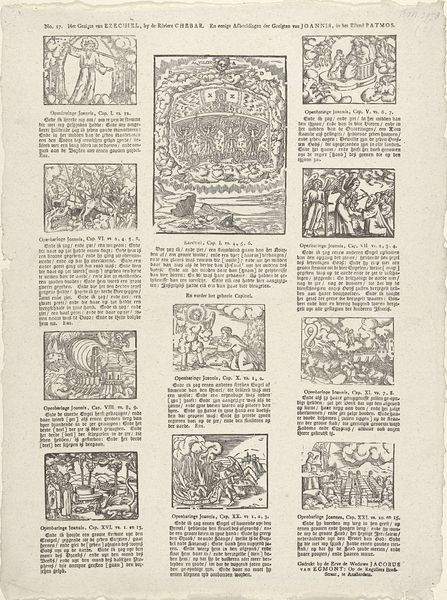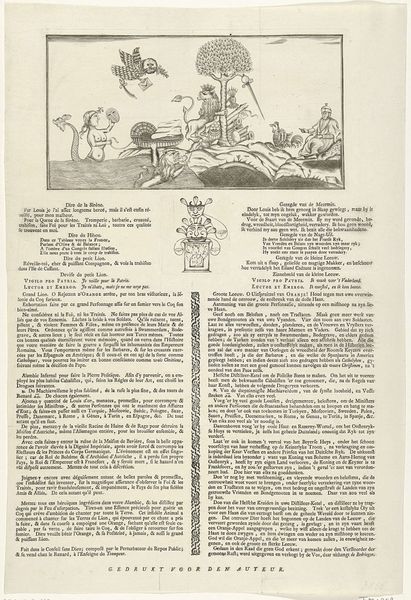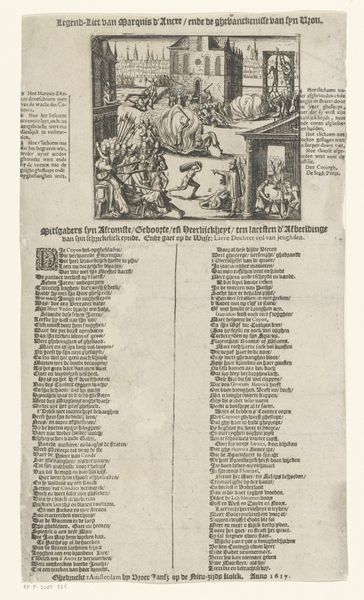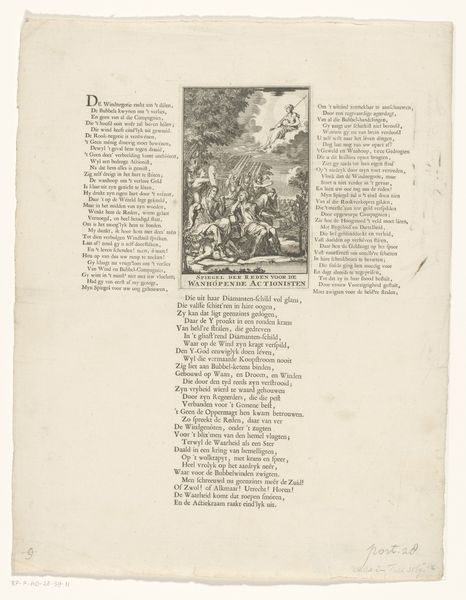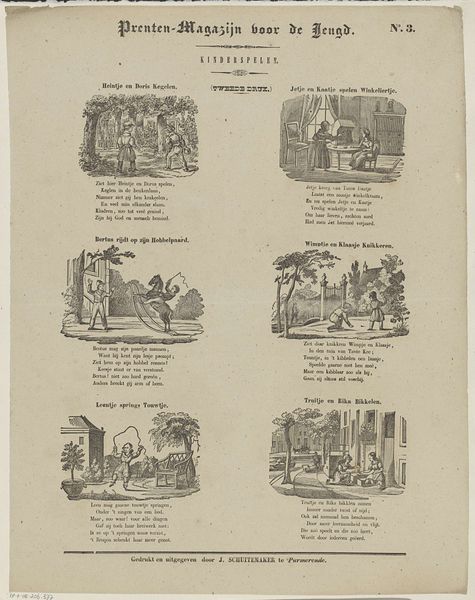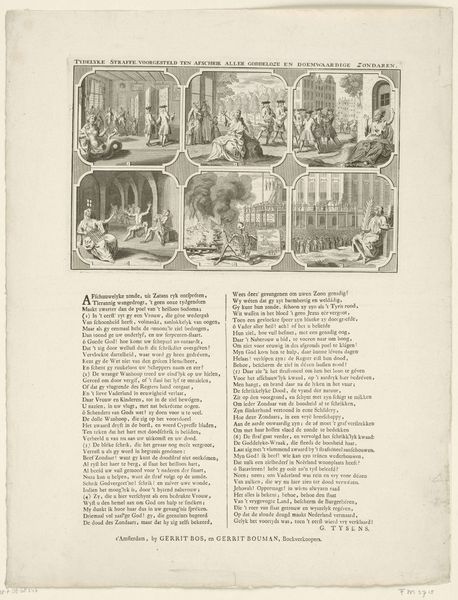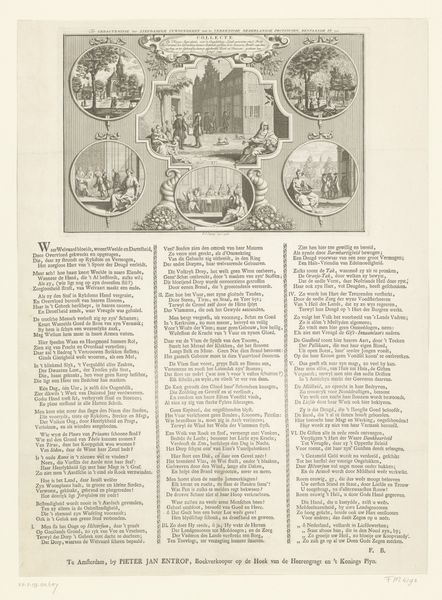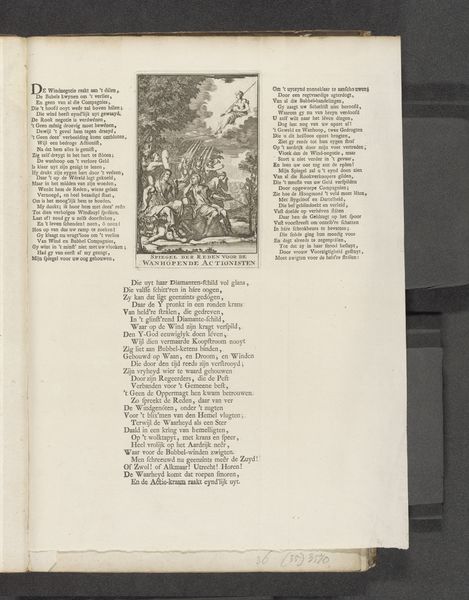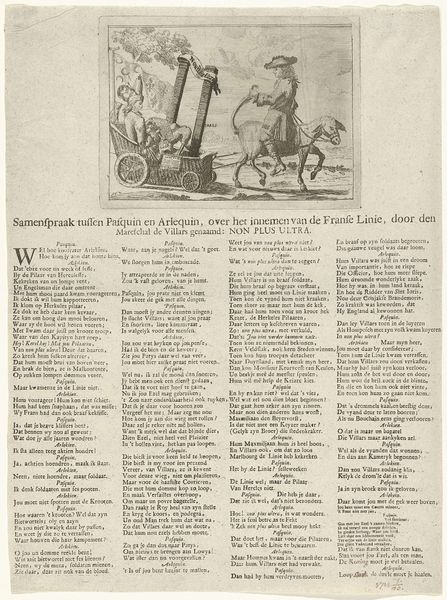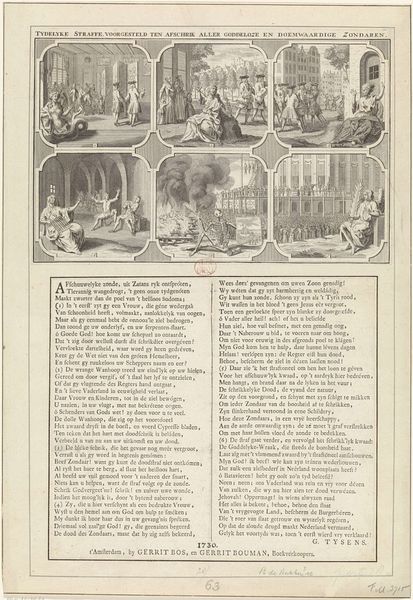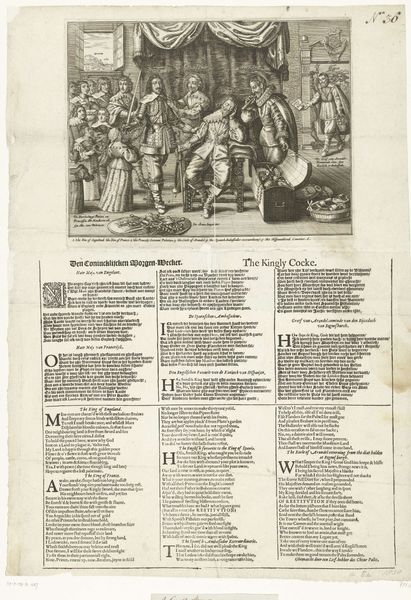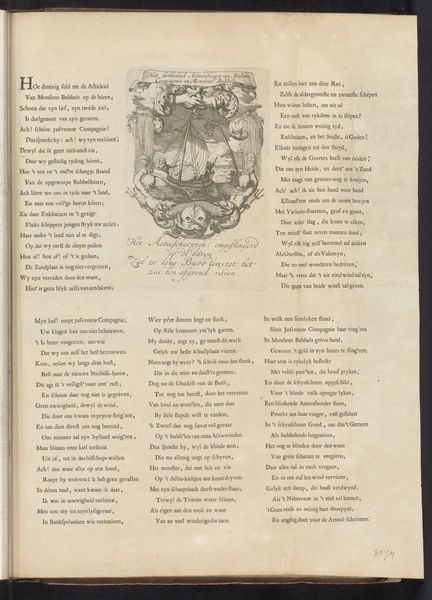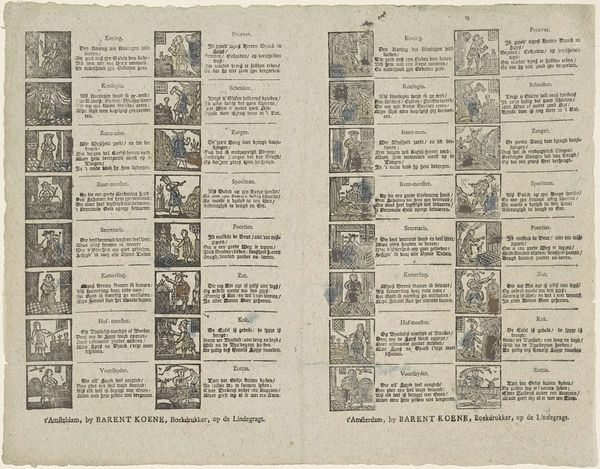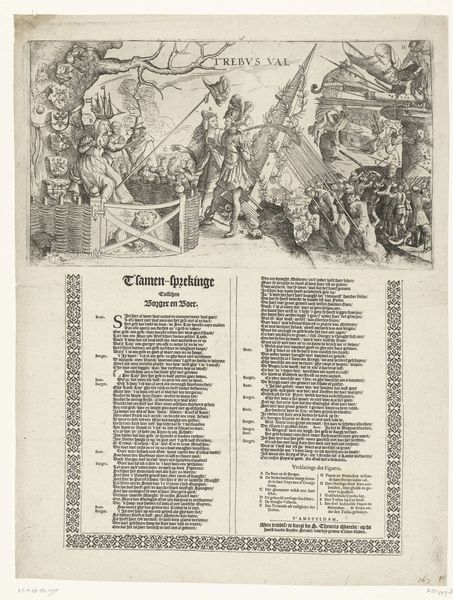
graphic-art, print, engraving
#
graphic-art
#
narrative-art
# print
#
history-painting
#
engraving
Dimensions: height 389 mm, width 321 mm
Copyright: Rijks Museum: Open Domain
Curator: So, Editor, what strikes you about this broadside entitled "Voorstellingen uit het Nieuwe Testament" by Dirck de Bray, dated 1796? It's quite a complex object, being both graphic art and text. Editor: It’s packed with little scenes, like a comic strip framing a poem. It looks… almost like propaganda. What do you see in this piece? Curator: I see a confluence of production and consumption. These engravings, reproduced en masse, speak to the era's socio-political upheavals – notice the poem’s appeal to “Gelijkheid, Vrijheid, Broederschap!” That mantra became so very widespread during that time, I am interested in thinking more about what freedom meant for those producing this work and how it intersected with ideas of commerce. How does that inform our understanding of the piece? Editor: I guess I hadn’t thought of it like that – as a manufactured object meant to promote those ideals. Does the very act of printing and distributing something like this influence or change the ideas it is meant to convey? Curator: Absolutely. Consider the material conditions: the printing press, the engraver’s skill, the paper itself – all products of labor, of industry. Each impression spreads the message, but also affirms the power of production, doesn't it? Editor: It changes my view. I’m more aware now of how this object functions beyond its stated religious context. Curator: Precisely. By focusing on materiality and production, we understand how art isn't separate from the economic and social forces of its time.
Comments
No comments
Be the first to comment and join the conversation on the ultimate creative platform.
